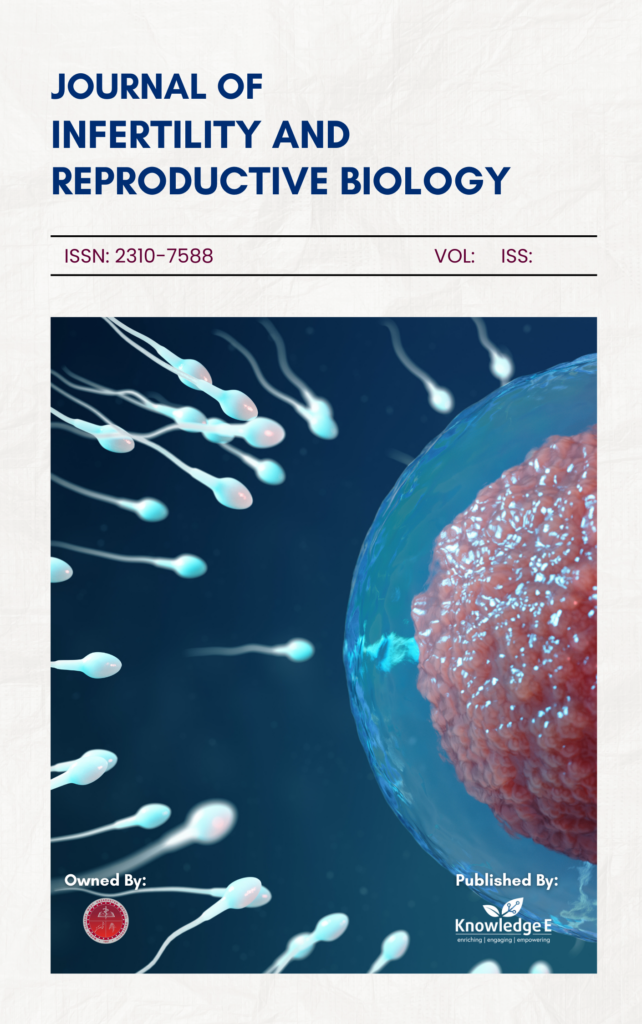
Journal of Infertility and Reproductive Biology
ISSN: 2310-7588
The latest research in infertility and reproductive medicine from across the world
Peer Review Policy
This journal follows a double-blind peer review process. The papers are generally peer-reviewed by two independent academic experts. The peer review process takes place before publication and is facilitated by the journal.
The editors mediate all interactions between reviewers and authors. The journal owns the reviews and does not publish them. The Editor-in-Chief is responsible for the academic quality of the publication process, including final acceptance decisions, approval of Guest Editors and special issue topics, and new Editorial Board members.
Editorial Decisions
Editorial decisions are not a matter of counting votes or numerical rank assessments, and we do not always follow the majority recommendation. We try to evaluate the strength of the arguments raised by each reviewer and by the authors, and we may also consider other information not available to either party. Our primary responsibilities are to our readers and to the scientific community at large, and in deciding how best to serve them, we must weigh the claims of each paper against the many others also under consideration.
Reviewers are welcome to recommend a particular course of action, but they should bear in mind that the other reviewers of a particular paper may have different technical expertise and/or views, and the editors may have to make a decision based on conflicting advice. The most useful reports, therefore, provide the editors with the information on which a decision should be based. Setting out the arguments for and against publication is often more helpful to the editors than a direct recommendation one way or the other.
Peer Review Process
The peer-review process is the main mechanism for ensuring the quality of published articles. To this end, the submitted articles are rigorously peer-reviewed to ensure that high-quality submissions are accepted and published. The decision to accept a manuscript is not based solely on the scientific validity and originality of the study content; other factors are considered, including the level of innovation, extent, and importance of new information in the paper as compared with that in other papers being considered, the Journal’s need to represent a wide range of topics, and the overall suitability for Journal. The peer-review process is followed as follows:
- At first, the editor(s) act as a first filter by evaluating each manuscript for novelty, interest for our readers, and chances to compete in peer review. Modifications/corrections may be requested from the authors at this stage before starting the peer review.
- In the second step, editors typically select two reviewers who are experts in the topic. Often, we also include one expert in statistics or a particular technique. Peer reviewers will make suggestions to the editor(s).
- The authors can monitor the progress of the manuscript throughout the review process in their profile.
- Submitted manuscripts will be rendered one of the following decisions: Accept Submission: The submission will be accepted without revisions. Revisions Required: The submission will be accepted after minor changes have been made. Resubmit for Review: The submission needs to be reworked, but with significant changes, it may be accepted. However, a second round of review will be required. Decline Submission: The submission will not be published in the journal.
Authors’ Appeal
Authors have the right to appeal any editorial decision. This can be done in the following order:
- Submitting an appeal request to the Editor-in-Chief, quoting the manuscript number and indicating the rationale for their dispute.
Authors may appeal if they feel that the decision to reject was based on one or more of the following elements:
- a conflict of interest by the reviewers, associate editors, or Editor-in-Chief.
- a major misunderstanding over a technical aspect of the manuscript.
- a failure to understand the scientific advances shown in the manuscript.
Appeals requesting a second opinion without sufficient justification will not be considered. Appeals will only be considered from the original submitting author/corresponding author.
Editing Reviewer Reports
As a matter of policy, we do not suppress reviewers’ reports; any comments that were intended for the authors are transmitted, regardless of what we may think of the content. On rare occasions, we may edit a report to remove offensive language or comments that reveal confidential information about other matters. We ask reviewers to avoid statements that may cause needless offence; conversely, we strongly encourage reviewers to state their opinion of a paper plainly.